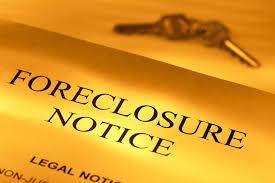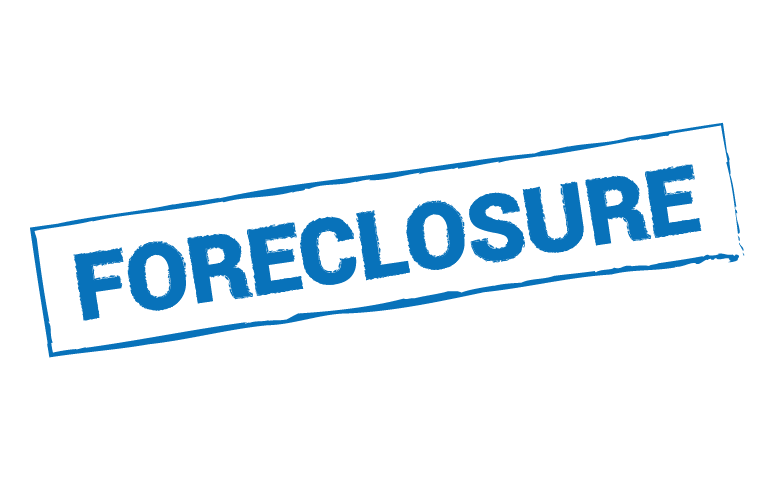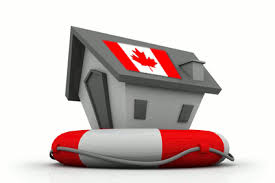Beginner's Guide To Foreclosures - Kamloops foreclosure process
Posted by Steve Harmer on Monday, February 8th, 2016 at 12:12pm.
The current commodities crisis has opened a new avenue of home sales, the purchasing and selling of foreclosure property.
 There can be profit in dealing with undervalued foreclosure property but there are pitfalls that must be taken into consideration. If your an investor and have the ability to make repairs/updates if needed on a foreclosure then maybe this is something that you should look at.Often houses that end up in foreclosure have a lot of "baggage" with them. Sometimes it can be a house that's not finished and will need more work, permits etc. to finish and some houses are left in a condition that make them unlivable.
There can be profit in dealing with undervalued foreclosure property but there are pitfalls that must be taken into consideration. If your an investor and have the ability to make repairs/updates if needed on a foreclosure then maybe this is something that you should look at.Often houses that end up in foreclosure have a lot of "baggage" with them. Sometimes it can be a house that's not finished and will need more work, permits etc. to finish and some houses are left in a condition that make them unlivable.
With low interest rates at the moment there are opportunities for people to buy a foreclosed property but an experienced Realtor is essential in this process as there are lots of pitfalls if you don't know the procedure.
What Types Of Foreclosures Are There?
Foreclosures may be quite familiar with most real estate property owners or investors but many still don’t know how they really work. Before you invest your money into real estate, it is of utmost importance that you understand the actual processes of foreclosure. A real estate investor is no different from a new home buyer when it comes into acquiring the full understanding of the real estate industry which includes the foreclosure process. This may not be difficult to understand because practically almost all provinces adhere to similar basic foreclosure procedures.
Foreclosure:
 Foreclosure is a procedure where a lending in situation or bank repossess or take hold of the property because the owner or borrower fail to make the payments according to the terms of mortgage or loan. There two types of foreclosures, the judicial and non-judicial.
Foreclosure is a procedure where a lending in situation or bank repossess or take hold of the property because the owner or borrower fail to make the payments according to the terms of mortgage or loan. There two types of foreclosures, the judicial and non-judicial.
1 - Judicial Foreclosure:
Judicial foreclosure is a legal procedure done through the courts to obtain judgment for the foreclosure. When people purchase a property and they don’t have enough money to purchase outright, they borrow from a lender or bank. In exchange for lending the money the bank will hold a lien against the property. If the borrower does not make payment according to the terms, the loan goes into default and lender can exercise the lien against the property. This will be made after several notices are given to the borrower to make the payments current. If no attempts are made to make repayments, then legal procedures will follow. After the court judgment is made, the bank/lender will now have legal possession of the property so that they can start the selling of the property to get back the loan capital . Legal documents will be filed including the lis pendens or a notice that legal action is pending on this particular property. Another term for this legal action is mortgage foreclosure.
2 - Non-Judicial Foreclosure:
 Non-Judicial Foreclosure is a procedure does not require court action because the title stays with the lender until full payment on the loan is made. At the start, the lender issues a deed of trust which can include a power of sale clause on the property. This involves sale of the property by the mortgage holder without court supervision. When the borrower doesn’t make the loan payments according to the terms, a Notice of Default is sent to the borrower. After a specified holding period, a Notice of Trustee Sale can be posted on the property. This process is much faster than a Judicial foreclosure because the owner of the home does not have a redemption period (or has a very short one) to get back up to date with payments.
Non-Judicial Foreclosure is a procedure does not require court action because the title stays with the lender until full payment on the loan is made. At the start, the lender issues a deed of trust which can include a power of sale clause on the property. This involves sale of the property by the mortgage holder without court supervision. When the borrower doesn’t make the loan payments according to the terms, a Notice of Default is sent to the borrower. After a specified holding period, a Notice of Trustee Sale can be posted on the property. This process is much faster than a Judicial foreclosure because the owner of the home does not have a redemption period (or has a very short one) to get back up to date with payments.
Here are the steps to buying a foreclosure
-
Firstly, it's important to remember that when purchasing a foreclosure, you will not know if you actually get to buy the house until the day of court. You need to be in a situation where you are flexible with moving dates. If you are currently renting, this can be remedied by planning the dates in your offer smartly.
-
Find a foreclosure you're interested in buying and contact an experienced Realtor who will help you understand the process and additional documents (Schedule A) usually required as well as how to structure the offer to suit your needs.
-
Submit an offer to the owner (if the home is in foreclosure then the bank takes back ownership)
-
Get your offer accepted by the bank then you will have a chance to do home inspection, get financing and anything else you want as outlined in the accepted offer.
-
Once you are satisfied with the home inspection and any other conditions you included in your offer, you can remove the subjects and give your deposit (if not already In Trust).
-
Once you have a subject free offer, the bank will request a court date to approve the sale. Usually takes 2-4 weeks to get a court date.
-
While waiting for the court date anyone else can still view the property and they can also find out what your accepted offer price is.
-
If another person likes the property and is willing to pay a little more than your accepted offer, they can go to court on the date posted and submit an offer of their own in an attempt to outbid you. If other buyers show up at court, the judge will allow you to take back your originally accepted offer and make changes (increase offer price). Typically the judge will award the sale to the highest bidder; I have seen Buyers win by literally a few dollars.
-
If you are the original offer and you are the only one to show up in court then the judge will look at your offer and more than likely approve the sale.
When the bank takes control of a house it costs them money everyday to maintain it. It costs the bank on average between $40-$80 a day to keep that house on the market. They will be paying for heat, hydro, maintenance fees and a property manager to take care of the property. They will consider these factors during the offer negotiation stage. Once the deal is in front of a judge, possession dates might become a deciding factor if the offer prices are very very close.

Pre-Foreclosures: (before the auction)
Properties with Notice of Default are called pre-foreclosures.These properties may be bought from the homeowners or from the financial institution holding the mortgage before the start of the foreclosure process.The homeowner can be relieved of his financial liability through this procedure and the buyer can sometimes obtain the property at a lower cost.
Bank Auction Foreclosures: (at the auction)
 The properties with Notice of Trustee Sale are categorized as auction properties. The banks or lending institutions place a foreclosed property into auction to get back the loan capital on the defaulted property. Prices may start from the outstanding amount of mortgage which can be an opportunity for buyers to get lowest cost for the property.
The properties with Notice of Trustee Sale are categorized as auction properties. The banks or lending institutions place a foreclosed property into auction to get back the loan capital on the defaulted property. Prices may start from the outstanding amount of mortgage which can be an opportunity for buyers to get lowest cost for the property.
Bank Owned Foreclosures: (after the auction)
If there are no bidders for the property for sale or the minimum bid is not met, the property becomes a bank owned property. The bank or lending institution can then start selling the property through a brokerage firm and get back their capital for the loan.
Have you noticed that the real estate business attracts numerous investors whether the market is up or down? The reason behind this is because even if when market prices are high , you can purchase a property, at below the market price, the potential to sell it for a profit is much more likely, especially if you are able to improve the property prior to relisting.
I hope this helps you understand the process of buying a foreclosure in BC. Let me know if you have any other questions or need some explanation and I’ll be happy do to so…
© http://www.foreclosures-gov.ca/chapter-1.php
© http://themacnabs.com/how-to-buy-a-foreclosure-in-bc/

